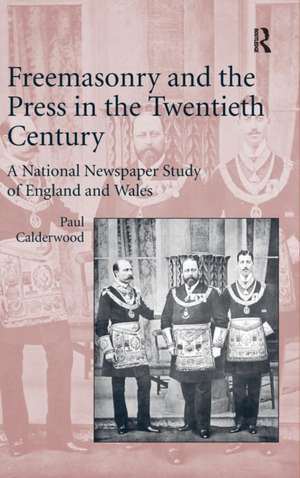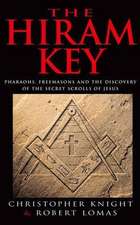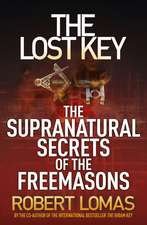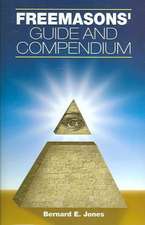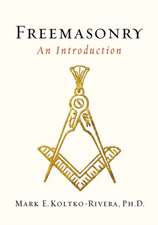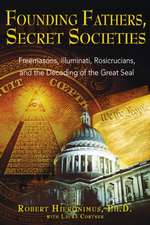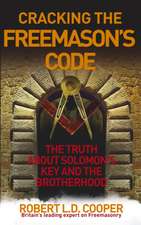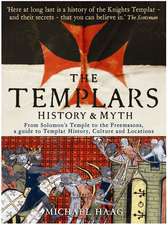Freemasonry and the Press in the Twentieth Century: A National Newspaper Study of England and Wales
Autor Paul Calderwooden Limba Engleză Hardback – 22 mai 2013
Preț: 1068.15 lei
Preț vechi: 1302.63 lei
-18% Nou
Puncte Express: 1602
Preț estimativ în valută:
204.45€ • 222.16$ • 171.85£
204.45€ • 222.16$ • 171.85£
Carte tipărită la comandă
Livrare economică 21 aprilie-05 mai
Preluare comenzi: 021 569.72.76
Specificații
ISBN-13: 9781409454335
ISBN-10: 1409454339
Pagini: 378
Dimensiuni: 156 x 234 x 22 mm
Greutate: 0.84 kg
Ediția:New.
Editura: Taylor & Francis
Colecția Routledge
Locul publicării:Oxford, United Kingdom
ISBN-10: 1409454339
Pagini: 378
Dimensiuni: 156 x 234 x 22 mm
Greutate: 0.84 kg
Ediția:New.
Editura: Taylor & Francis
Colecția Routledge
Locul publicării:Oxford, United Kingdom
Cuprins
Contents: Preface; Introduction; The source and treatment of news; Politics; Suspicion; Religion; Royal endorsement; Membership; Buildings; Benevolence; Overseas news; Conclusion; Appendices; Bibliography; Index.
Notă biografică
Paul Calderwood graduated in History from the University of Leicester and subsequently spent his working life in journalism and public relations. More recently, his work has been featured in The Journal for Research into Freemasonry and Fraternalism, the leading academic journal in this field. For his paper on Freemasonry and Architecture in Twentieth-century Britain, he was awarded the Norman B Spencer Prize by Quatuor Coronati Lodge, the premier lodge of Masonic research, in 2010, and, in the following year, he received the Degree of Doctor of Philosophy from Goldsmiths, University of London for his thesis on the history of Freemasonry and the Press in Twentieth-century Britain.
Recenzii
'All in all, an unexpected gem, which illuminates an area of Masonic research much overlooked up until this work was published.' Irishfreemasonry.com '... to the serious Masonic scholar and those interested in the wider social history of modern Britain, it [Freemasonry and the Press in the Twentieth Century] is an absolute goldmine as a source of material.' The Square ’This book is welcome because it addresses questions about the decline in associational culture and its appendices contain plenty of easily accessible data. Freemasons are presented as actors, not victims and, more than this, through exploring the relationship of freemasonry with communism, fascism and deference, the author has helped to take analysis of freemasonry into the mainstream of British social history.’ Journal for Research into Freemasonry and Fraternalism
Descriere
By the end of the twentieth century, Freemasonry had acquired an unsavoury reputation as a secretive network of wealthy men looking out for each other’s interests. The popular view is of an organisation that, if not actually corrupt, is certainly viewed with deep mistrust by the press and wider society. Focusing particularly on the role of the press, this book investigates the transformation of the image of Freemasonry in Britain from respectability to suspicion. Through this examination a number of related social trends are addressed, including the decline of deference, the erosion of privacy, greater competition in the media, the emergence of more aggressive and investigative journalism, the consequences of media isolation and the rise of professional Public Relations.
